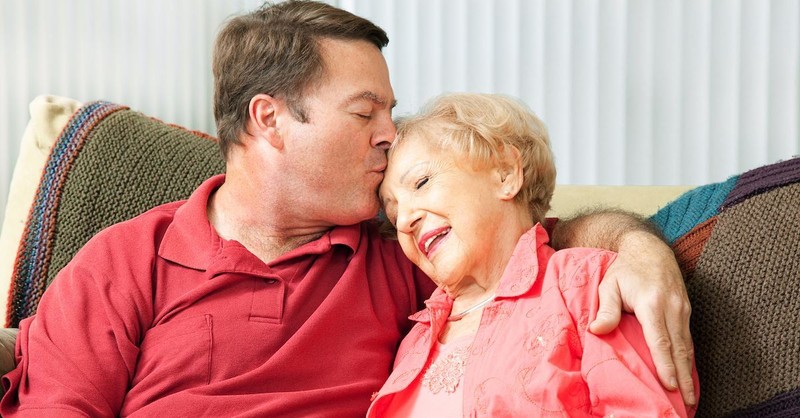
Are you actively caring for a loved one in your family? Or do you love someone who is giving of their time, resources, and attention in the service of someone who needs a great deal of care?
Caregivers bless others with constant kindness. And because they give so much, I wanted to know what kindnesses caregivers need to refuel. So I invited caregivers to a meeting.
I knew it would be a short meeting because that’s the only kind I knew caregivers could attend. They typically enjoy little time away from their loved ones, and I wanted to be sensitive to that. More importantly, I wanted to give voice to their needs.
When everyone was seated, I gave them each a small bouquet of flowers.
“I want you to know you are appreciated,” I said. People cried to the left and right of me.
“I want you to relax, this meeting is for you,” I said, smiling.
“From your experience, what do you wish your friends knew you needed as a caretaker?”
Here are the 10 important needs they shared, and suggestions for giving to the caregivers in your life:
Photo Credit: ©Unsplash/Diego-ph

1. Give caregivers a break.
Immediately Krista shared:
“Respite was the thing we found we needed most.” Krista shared. “Caring 24/7 for a loved one is completely exhausting. An afternoon or a weekend break is a must! We were fortunate that we found an excellent elder daycare facility. We took our loved one there once a week. It allowed us to get out for lunch together, and I could do any necessary shopping. Sometimes we just needed a break.”
Fill in for the caregiver so they can do errands or rest. Just that time away from the responsibility will refresh the caregiver who needs to be replenished.
Photo Credit: ©Unsplash/Saeed-mhmdi

2. Give the caregiver emotional support.
Danielle’s hand was up.
“I would love it if someone asked me how I am doing. I really need the emotional support. Taking care of someone 24/7 is depleting. And without something in our tanks, we can’t be expected to meet the needs of another.”
Joy nodded her head adding, “I feel so isolated with all of the negativity I deal with. Being asked about how I’m doing sounds wonderful. It would make me feel less separated from everyone, that’s for sure. Sometimes it feels as if the world is going on and I’m not a part of it.”
Proverbs 11:25 talks about the importance of being refreshed.
Send a card to the caregiver sharing how much their work is appreciated. Let them hear that their work is not going unnoticed.
Photo Credit: ©GettyImages/Hakase

3. Pray for the caregiver.
“I don’t know about anyone else,” Barb began. “But I know I need prayers for strength and comfort. There are some days I feel like I just can’t do another thing. And I know with God all things are possible. I also need wisdom that I will make the right decisions. We have so many things to tend to and if an emergency arises, I want to know I’m making the right decision.”
Connie added, “I find it so encouraging when my friend calls me to ask me how she can be praying. She understands I have little time to call her so she initiates. I cannot tell you how touched I am when we are done talking and she says, ‘Let me pray for you,’ mentioning all the things I just shared with her.”
Whenever you think about the caregiver you know, let that be a signal to bring that person before the Lord. Ask God to give the caregiver the strength they need and the wisdom to make the right decisions.
Photo Credit: ©GettyImages/palidachan

4. Give the caregiver understanding.
Susan rose to her feet:
“I just need someone to listen and to understand that it’s hard. I don’t like to complain, so it’s hard to talk about my responsibility with my mom without sounding tired. And I don’t care for her 24/7 like some others who are here, but even so, she is a handful.”
Heads were nodding all over the room. Those who care for others need to know someone cares about them as well. That their needs matter. And if they feel heard, resentment will be less likely.
Give a caregiver time to share their concerns, their frustrations. Don’t offer suggestions, just listen. Sometimes they just an opportunity to vent.
Photo Credit: ©GettyImages/monkeybusinessimages

5. Give the caregiver time for self-care.
Devan raised her hand.
“Sometimes I just wish someone would come and relieve me for just an hour so I could pamper myself. It would feel so wonderful.”
“Yes,” Vickie agreed, “I just need a little time for myself.”
George added, “In today's world, putting oneself first isn't an option when your heart tells you to do your best and care for those who once cared for you.”
Yet no one can effectively care for others if their own needs are not met.
Schedule some time where someone can sit in for the caregiver. This will ensure they can take action to care for themselves as well as the one they look after. Encourage them to attend a class, take a walk, get a healthy meal; whatever they feel will tend to their personal needs.
Photo Credit: ©GettyImages/Halfpoint

6. Give words of encouragement for the caregiver.
Barb spoke next:
“I think it’s important to remember that many of us struggle with the fact that we are watching our parents deteriorate. I’ve been told there is grief involved. It’s like some of us dies along with them. I think it would be wonderful if we could hear words of encouragement on the job we’re doing. And when we’re doing well, it would be nice to hear it. Words of praise can give us so much energy and help us to ward off weariness and discouragement.”
“I agree with that,” Eric said, as I acknowledged him. “It’s possible that family members don’t realize what you’re doing as a caretaker and you’re thought of as lazy. That is so hard to hear.”
“This is a job learned by doing, just like parenting,” Tonia added.
Look into the eyes of the caregiver and thank them for their work. People need to hear that they are doing a good job. Words have power.
Photo Credit: ©GettyImages/MangoStar_Studio

7. Visit the person who is receiving care.
Bobbie shared:
“I wish someone would come and visit with them, or take them to dinner, so that dinner out or alone would be possible, without feeling guilty.”
“Yes,” Dave added. “Not only a visitor for them, but someone I could talk to. To offer a little TLC. The stress was close to unbearable at times.”
Steph added, “Visitors are a huge need. Even just to drop in for an hour, or even 30 minutes. It's nice to see a smile on their faces. Or have something to look forward to. My dad's mood always became brighter leading up to the days of a visitor. Very special to see.”
Visits share the load that caregivers bear. Galatians 6:2. Make time to visit, even for a short one.
Photo Credit: ©GettyImages/lisafx

8. Help with meals.
Sandra shared next:
“Rather than someone asking what they can do to help, they need to just do something. Sending a meal is always good. Having food sent helps so much; there's one less thing to have to think about. You have no idea how much that is appreciated!”
“You’re right,” I said. “Often people in your lives will step back saying, ‘Let me know if you need something.’ But when you are caring for an aging or ill parent, it is overwhelming at times. And depending on how tired you are, you may not think straight clearly enough to know what you need at the moment. It’s important to look at the caregiver,” I continued, “and ask yourself...if you were in that situation, what would you need?”
Make a meal to bring over. If you don’t have time, then pick up something. It will mean so much.
Photo Credit: ©GettyImages/SilviaJansen

9. Give a gift to the caregiver.
Carol needed encouragement to share.
“Gifts,” said Carol. “One day, when I was about to leave home, I noticed a gift bag by my back door. Inside was my favorite magazine, some hand lotion and a CD I loved. My friend touched my heart by letting me know, that even though I couldn’t spend time with her, she was thinking of me.”
I smiled thinking of the many times I had received gifts myself, and how it felt like God himself had provided it.
Gifts do not have to be anything elaborate. Think about what you would enjoy receiving. Gifts can lift someone’s weary heart.
Photo Credit: ©Unsplash/Shawnee Wilborn

10. Give your caregiver grace.
Everything that was spoken showed that these caregivers need grace for every moment they give to their families. Grace is something we can extend no matter what.
Grace lets them know that we see the sacrifices they make and we are behind them. God gives us grace and he wants us to pass it along. Grace says we understand how hard this must be, and we will be patient with them. We should drench every word we give them with grace.
Grace oils the places that are squeaky. It also helps if the caregiver has been doing this for a long time. God tells us in Hebrews 4:16 that we are to approach God’s throne of grace with confidence. He will give us mercy and grace to help in time of need. Everyone needs grace.
Giving grace means we overlook faults. Giving grace means we are kind.
A prayer for caregivers:
Father, we come before you asking you to give strength to those who faithfully take care of others. Lord, we ask that you bless them for their sacrifice. Give them refreshment when they are weary. Help us to let them know they are appreciated. Give us wisdom as we interact with caregivers. Father, they may feel isolated from the world around them. They may feel lonely. I pray your Holy Spirit guides and directs us so that we may help share the burden they sometimes feel. God, you see the loving hearts of these caregivers. Help us let them know they are appreciated. And thank you, Lord, for the caregivers in our lives. For they reflect your Son. We pray all this in Jesus’ precious and Holy name. Amen.
 Anne Peterson is a regular contributor to Crosswalk. She is a poet, speaker, and published author of 14 books. These books include: Broken: A story of abuse, survival, and hope, as well as a volume of 3 books, He Whispers: Poetic talks with God. Sign up for anne’s newsletter atwww.annepeterson.comand click on free Ebooks to choose one. Or connect with Anne on Facebook.
Anne Peterson is a regular contributor to Crosswalk. She is a poet, speaker, and published author of 14 books. These books include: Broken: A story of abuse, survival, and hope, as well as a volume of 3 books, He Whispers: Poetic talks with God. Sign up for anne’s newsletter atwww.annepeterson.comand click on free Ebooks to choose one. Or connect with Anne on Facebook.
Photo Credit: ©GettyImages/monkeybusinessimages
Originally published Friday, 13 September 2019.








